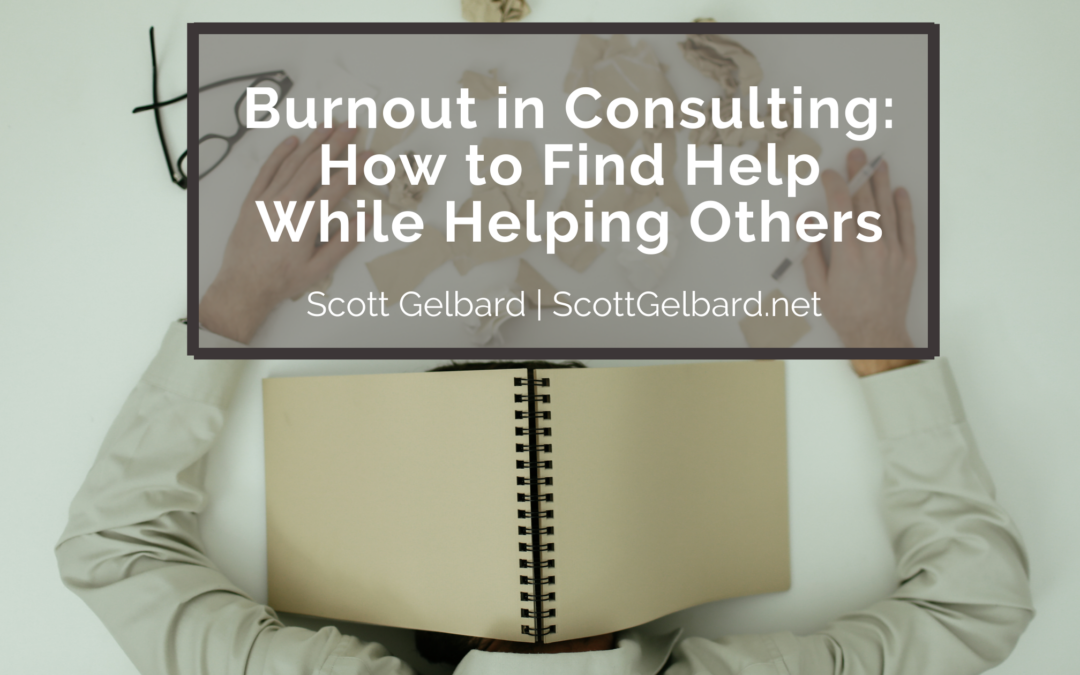Consulting is a demanding field that requires professionals to go above and beyond to meet client expectations and deliver results. The relentless pace, high-pressure environments, and constant travel can take a toll on consultants, leading to burnout. However, in a profession centered around helping others, consultants need to recognize the signs of burnout and seek support while continuing to provide valuable assistance to clients. Here’s how consultants can find help while still helping others.
Recognize the Signs: The first step in addressing burnout is recognizing its signs and symptoms. These may include persistent exhaustion, cynicism, decreased productivity, and feelings of detachment from work. By acknowledging these indicators, consultants can take proactive steps to prevent burnout from escalating.
Prioritize Self-Care: Consultants must prioritize self-care to maintain their well-being and effectiveness. This includes getting adequate rest, regular exercise, maintaining a healthy diet, and setting aside time for hobbies and relaxation. Establishing boundaries between work and personal life is crucial for preventing burnout and maintaining work-life balance.
Seek Support: Consulting can be isolating, especially for consultants who spend significant time away from their colleagues and support networks. Building a solid support system of friends, family, and peers can provide emotional support and perspective during challenging times. Additionally, seeking professional counseling or therapy can help consultants process stress and develop coping strategies.
Delegate and Collaborate: Consultants often feel responsible for delivering results single-handedly, but it’s essential to recognize when to delegate tasks and collaborate with colleagues. Delegating responsibilities not only relieves pressure but also empowers team members and fosters a sense of camaraderie. Collaboration allows consultants to leverage diverse expertise and perspectives, leading to more innovative solutions and reduced workload.
Manage Workload and Expectations: Learning to say no to additional projects or unrealistic deadlines is crucial for preventing burnout. Setting realistic expectations with clients and stakeholders regarding deliverables, timelines, and resource constraints helps manage workload and reduce stress. Effective project management techniques, such as prioritizing tasks and allocating resources efficiently, can prevent burnout by promoting a more manageable workload.
Invest in Professional Development: Continuous learning and skill development are essential for staying relevant and motivated in consulting. Investing in professional development opportunities, such as workshops, conferences, and certifications, enhances consultants’ expertise and fosters a sense of fulfillment and engagement in their work.
Practice Mindfulness and Stress Reduction Techniques: Incorporating mindfulness practices and stress reduction techniques into daily routines can help consultants manage stress and maintain resilience. Techniques such as meditation, deep breathing exercises, and mindfulness-based stress reduction programs have been shown to reduce burnout and enhance well-being.

